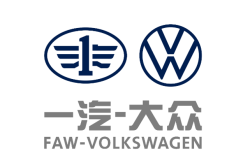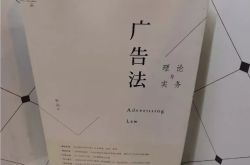"Tears" of Guangfeng, "Sin" of Domestic Brands?
![]() 07/01 2024
07/01 2024
![]() 513
513
Is it about setting a new record? Is it simply about increasing the fuel tank and battery size? Is it just about competing for lower fuel consumption and longer range?
Is this the true meaning of domestic "hybrid" technology, just to set some kind of record?
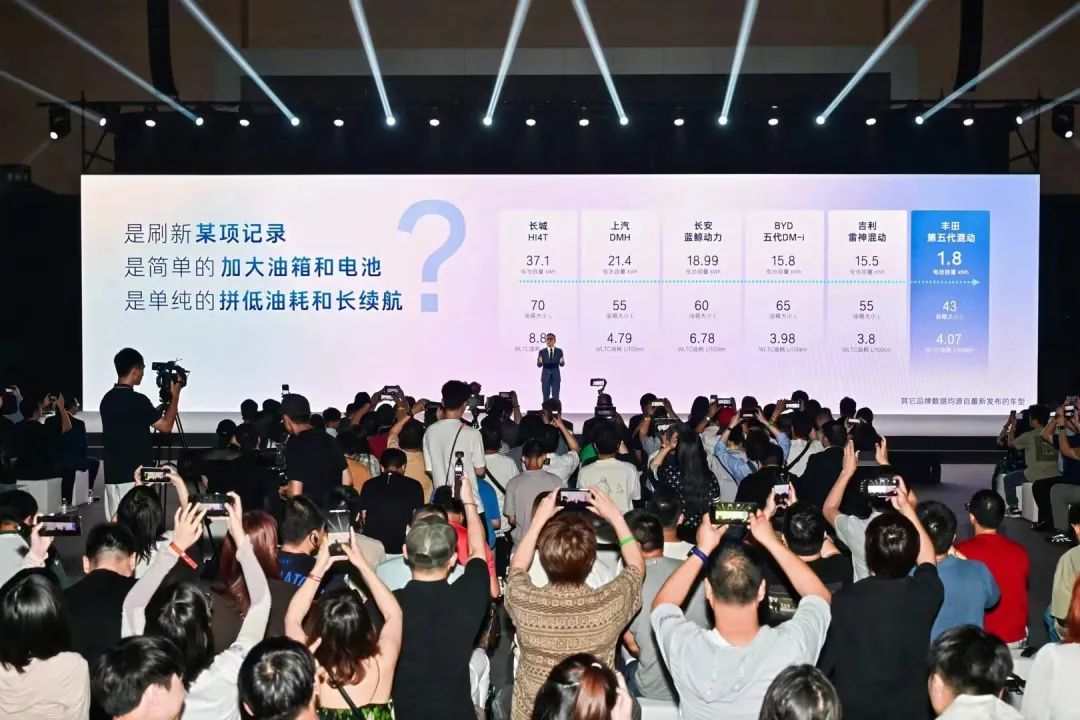
These were the "three soul-searching questions" raised by Peng Baolin, the deputy general manager of GAC Toyota, during the "Technology Open Day" held on June 28.
He then launched a scathing attack, questioning whether domestic hybrids are simply about increasing fuel tank and battery size, competing solely on low fuel consumption and long range, and using PPT examples to illustrate his doubts:
Great Wall Hi4-T has a battery capacity of 37.1kWh, fuel tank capacity of 70L, and WLTC fuel consumption of 8.8L/100km; SAIC DMH has a battery capacity of 21.4kWh, fuel tank capacity of 55L, and WLTC fuel consumption of 4.79L/100km; Chang'an Blue Whale Power has a battery capacity of 18.99kWh, fuel tank capacity of 60L, and WLTC fuel consumption of 6.78L/100km; BYD's fifth-generation DM-i has a battery capacity of 15.8kWh, fuel tank capacity of 65L, and WLTC fuel consumption of 3.98L/100km; Geely's Leishen hybrid has a battery capacity of 15.55kWh, fuel tank capacity of 55L, and WLTC fuel consumption of 3.8L/100km.
He directly criticized BYD's fifth-generation DM-i, Geely's Leishen hybrid, Great Wall's Hi4T, Chang'an Blue Whale Power, and SAIC's DMH, without any hesitation. This is unprecedented in a joint venture press conference, even Dongfeng Honda may feel inferior.
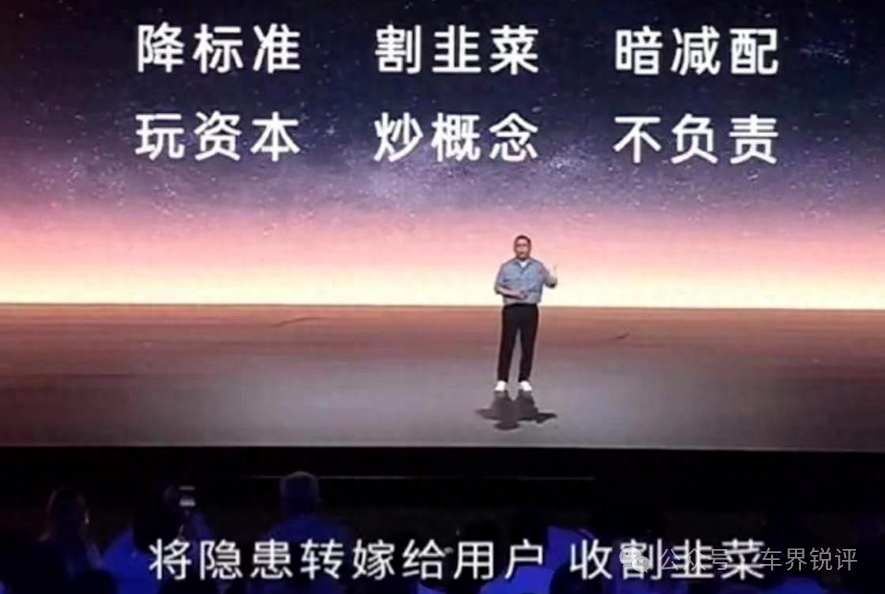
For onlookers, Peng Baolin's attack was quite satisfying to watch.
Honestly, this speech was quite exciting, as it has been a long time since we've seen joint venture automakers so desperately join the technology battle.
So, who has the upper hand, oil hybrids or electric hybrids?
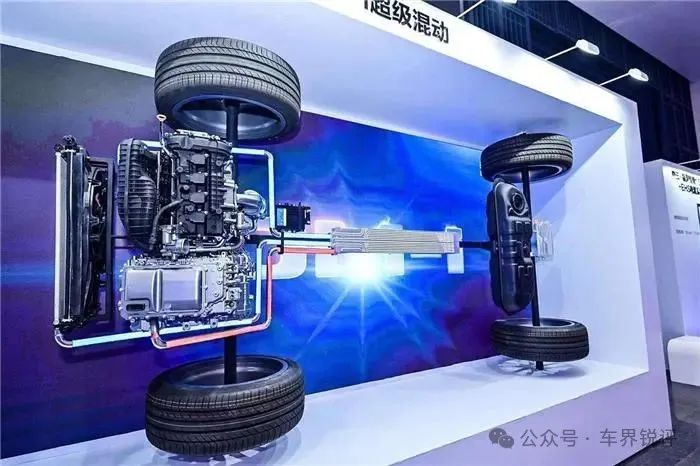
During Peng Baolin's passionate speech, he compared multiple domestic new energy brands' hybrid technologies.
His conclusion was that true hybrid technology is a deep integration of oil and electricity, while China's new energy automakers use electricity at low speeds and oil at high speeds, essentially separating oil and electricity, failing to truly integrate them. This results in a superficial union between oil and electricity, unable to achieve a deep bond.
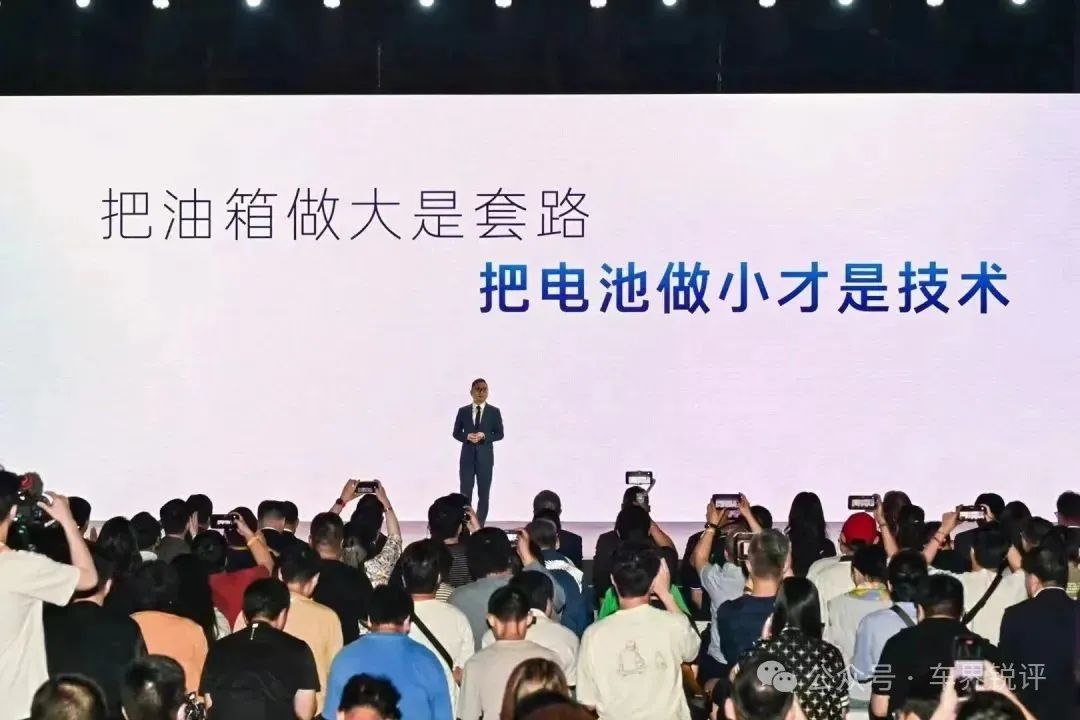
He gave the ultimate conclusion - making the fuel tank bigger is a gimmick, while making the battery smaller is real technology.
On the contrary, he showcased his fifth-generation hybrid technology, with a battery capacity of only 1.8kWh and a fuel tank capacity of only 43L, but achieving a fuel consumption of 4.07L per 100km. He also emphasized that Toyota's intelligent electric hybrid system, with planetary gears at its core, is still an unsurpassable peak, remaining the number one global brand for intelligent electric hybrids and the "best choice" for users in the hybrid era!
This is because Toyota's intelligent electric hybrid system can work efficiently under all conditions, achieving a comprehensive balance between book parameters and actual performance.
Based on this, Peng Baolin firmly believes that Toyota's intelligent electric hybrid system was, is, and will continue to be leading technology! It remains the mainstream path for electrification!

So, is GAC Toyota's viewpoint valid?
The answer is obviously no.
They believe that true technological strength should be reflected in the adaptability to all working conditions and the balance between book parameters and actual performance, rather than simply pursuing extreme performance in one aspect.
In fact, this is a battle over hybrid technology routes, which will undoubtedly generate more attention and discussion in the new energy vehicle field.

Whether it's BYD or Toyota, they are interpreting the future of new energy vehicles in their own ways.
So, whose technology route better represents the development direction of new energy vehicles? Perhaps only the market and time can provide the ultimate answer.
It is said that there are only two types of hybrids in the world: one is Toyota, and the other is everything else. Why did this once self-confident leader suddenly take issue with domestic oil-electric hybrid technology?
There seems to be a hint of strangeness in this controversy!
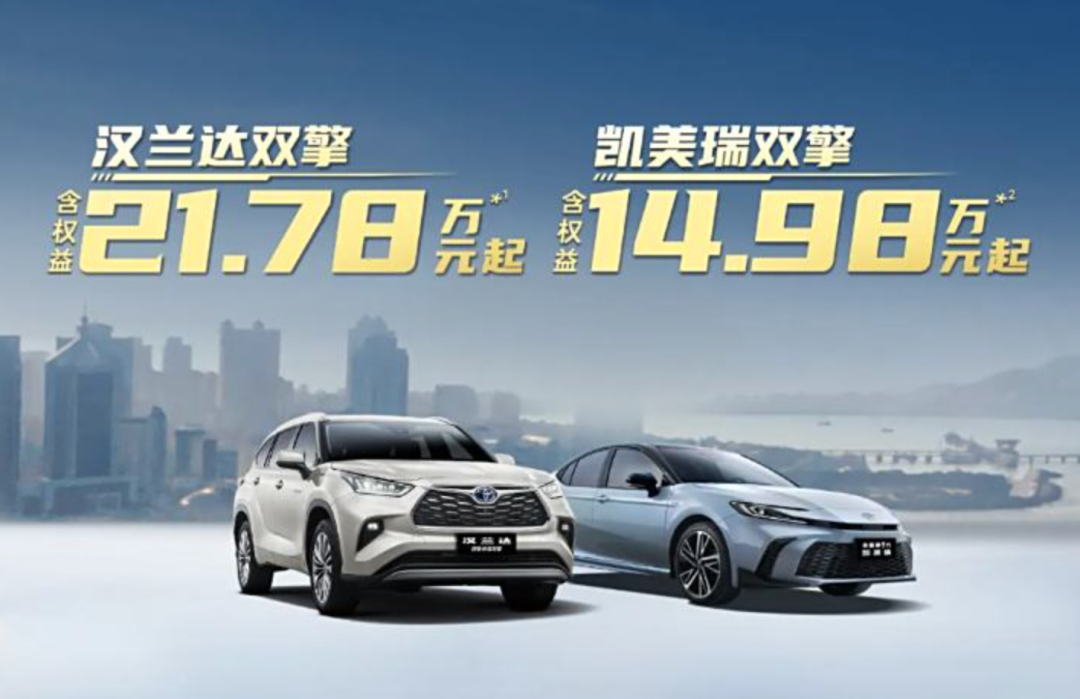
However, when you see the astonishing news that GAC Toyota offered a starting price of 149,800 yuan for the Camry Hybrid during the "618" shopping festival, perhaps you understand some of the logic behind it.
This once-popular B-class car, priced at over 250,000 yuan, is no longer selling well.
Remember those days when popular models like the Camry and Highlander were sold at a premium for a long time.
Dealers made a fortune, and GAC Toyota also profited handsomely. Because of this, GAC Toyota proudly coined a new term called "joint venture new head".
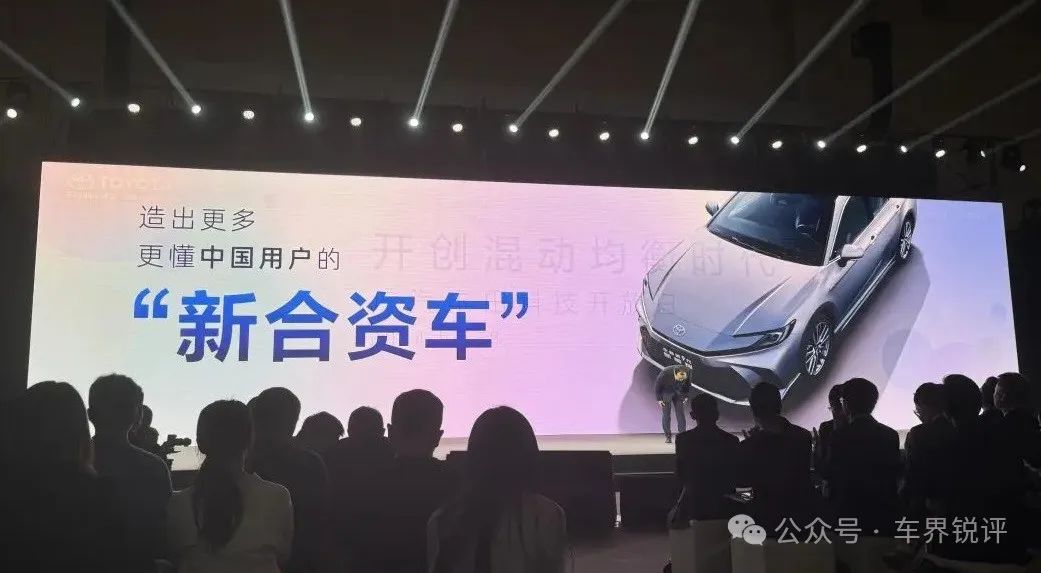
Thinking about it, GAC Toyota's sales exceeded 1 million units in 2022, which is an impressive achievement.
However, in 2023, GAC Toyota's sales were 901,000 units, and its cumulative sales from January to May this year were 266,000 units, with a year-on-year decline of 27.26%!
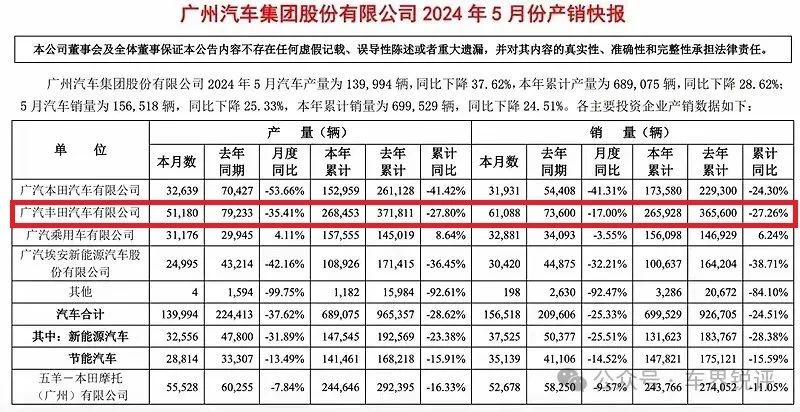
This indicates a worrying trend, that GAC Toyota's sales are rapidly declining. With the decline in prices of domestic brands, GAC Toyota sees no sign of stopping the decline.
At this point, it's not surprising to see Peng Baolin "crying" and loudly denouncing "industry chaos," directly attacking domestic brands like BYD. One wonders if such "urgent appeals" can save Toyota from the era of domestic brands.
After all, emerging brands like BYD, Great Wall, and Chang'an are busy strangling the necks of joint venture automakers and pushing forward the next era of "overthrowing joint ventures" and "overthrowing fuel vehicles." Do you agree with this view?

